-
 Perseverance to Become the Greatest Club in the World
Perseverance to Become the Greatest Club in the World
The incredible victory in Basel in May 1979, when Barça won the European Cup Winners’ Cup for the first time ever, returned FC Barcelona to the top ranking positions of the great world clubs. It was the first victory during Josep Lluís Núñez’s presidency.
During the 1980s, FC Barcelona experienced alternating highs and lows, influenced by match results, star players’ performances and other matters, unrelated to sport.
This decade saw the arrival of fantastic footballers -including Quini, Maradona, Schuster, Alexanco, Julio Alberto, Urruti, Marcos…- and a series of managers with very different outlooks on football -Helenio Herrera, Lattek, Menotti, Venables… This was also the period in which the first multi-million contracts appeared and television rights began to influence the Club’s financial affairs. The organisation grew bigger with the extension of the Camp Nou and a spectacular rise in membership numbers, which saw the total figure increase to over one hundred thousand.
-
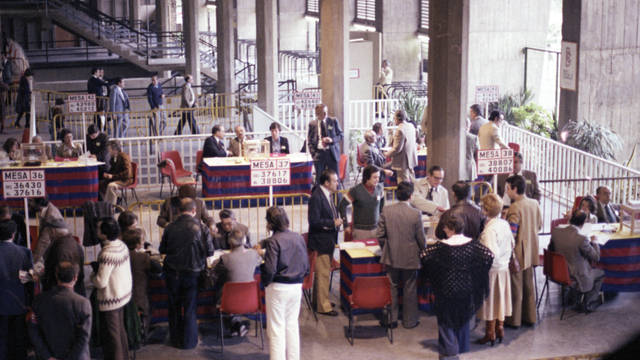 The end of the Francoist dictatorship and the country’s phase of political transition enabled the Club to return to democracy
The end of the Francoist dictatorship and the country’s phase of political transition enabled the Club to return to democracy
On 6 May 1978, the first elections of the new democratic period were held. All members were able to choose their president freely. Josep Lluís Núñez was elected, with the campaign “Let’s open up Barça”. Núñez was insistent on his aim to make the Club more accessible to its members, and the need to straighten out the Club’s financial situation.
-
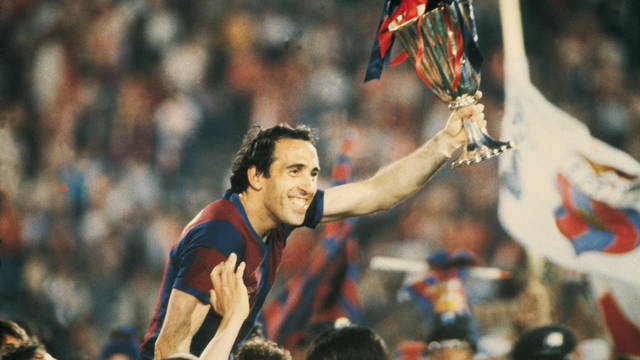 A sea of blue and claret at the final in Basel
A sea of blue and claret at the final in Basel
On May 16 1979, Barça won the Cup Winners’ Cup against Fortuna Düsseldorf (4-3), in an epic match that ran into extra time.
An impressive group of some 30,000 Barcelona supporters accompanied the team to its victory; bringing their Senyeres and blue and claret flags across Europe. The European title victory prompted an unprecedented celebration on the streets of Barcelona and in other Catalan cities. The champions received a sensational homecoming, with two players given an especially ecstatic reception: Johan Neeskens, who was leaving the team, and Migueli, who had played the final with a broken collarbone.
-
 On 1 March 1981, Enrique Castro, 'Quini', was kidnapped from his own front door
On 1 March 1981, Enrique Castro, 'Quini', was kidnapped from his own front door
On 1 March 1981, the team’s best striker, Enrique Castro, “Quini”, was kidnapped from his own front door. His captivity lasted 25 days, during which time the team members rallied around each other.
Quini’s kidnapping had an enormous emotional impact on the team. Left without its striker, the team was obliged to continue playing the League, but lost any chance of winning the title. Barça supporters carried out a mass demonstration for Quini’s release, which eventually came about on 25 March.
-
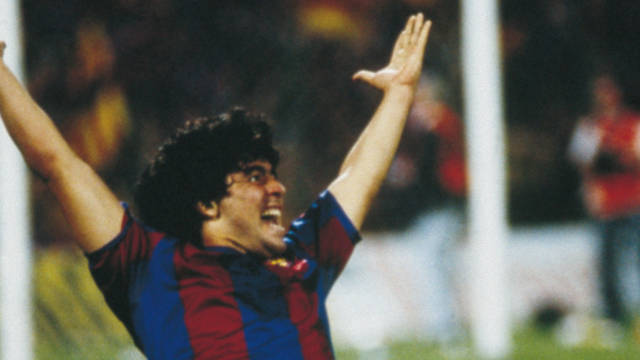 One of the most complex and expensive transactions carried out by FC Barcelona was the signing of Diego Armando Maradona, in the summer of 1982
One of the most complex and expensive transactions carried out by FC Barcelona was the signing of Diego Armando Maradona, in the summer of 1982
Maradona was considered the best footballer in the world at that time. Maradona, known as 'El Pelusa', was a maestro of unforgettable moves and goals. The Argentinean forward was a football prodigy, with his magical left foot, changes of rhythm, speed and dribbling.
However, his time with Barça was marred by bad luck. In two years, he suffered from hepatitis and a serious injury. These misfortunes meant that fans could not enjoy his exceptional talent uninterruptedly.
-
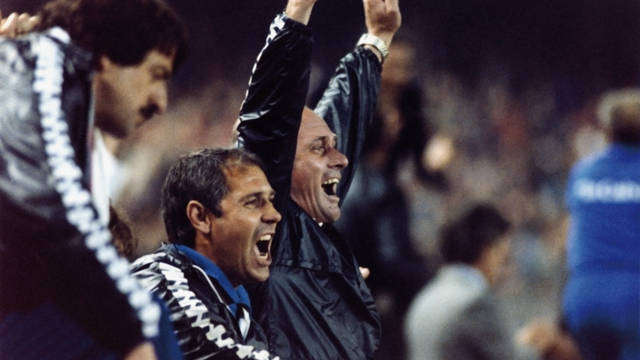 Barça lost the Spanish League during the final matches of the 1981-82 season, although victory had seemed imminent
Barça lost the Spanish League during the final matches of the 1981-82 season, although victory had seemed imminent
Lattek’s team had also been knocked out of the Spanish Cup before the quarterfinals. Nonetheless, euphoria returned to the Stadium in the form of a new European victory. On 12 May, Barça won its second Cup Winners’ Cup; the final was played at the Camp Nou against Standard Liège (2-1), with goals from Simonsen and Quini.
-
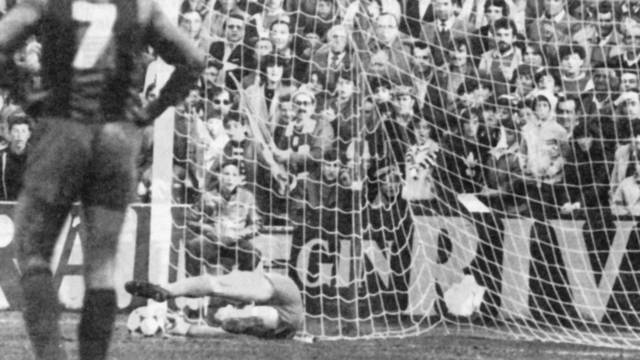 On 24 March 1985, Barça secured the League title with four matches still to play, with a win in Valladolid (1-2)
On 24 March 1985, Barça secured the League title with four matches still to play, with a win in Valladolid (1-2)
A penalty awarded against Barça in the 88th minute could have delayed the team from winning the title. Urruti saved 'Mágico' González’s shot, and Barça became League champion for the first time in eleven years. The Basque goalkeeper went down in the Club’s history.
The match was broadcast on Catalunya Ràdio, with commentary from Joaquim Maria Puyal. Upon seeing the goalkeeper’s save, he repeatedly exclaimed “Urruti, I love you”. These words have come to mark the culminating moment of a League that Barça sorely wanted to win.
FCB
Search results
1978-1988 More Members, More Stars
Subscribe to:
Comments (Atom)
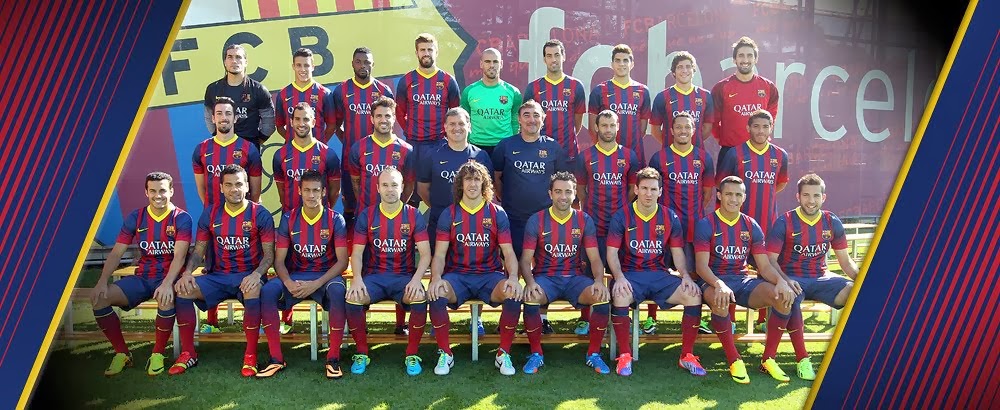
No comments:
Post a Comment